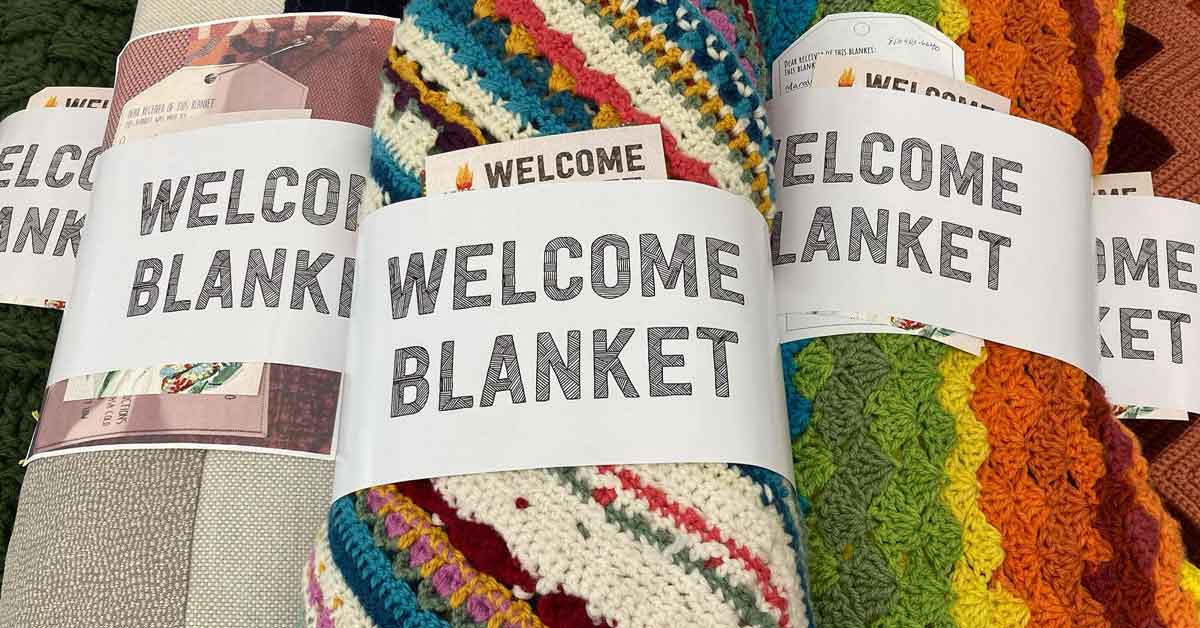The fashion industry doesn’t want you to know the story of what’s in your closet.
The secret? Many of the people who manufacture clothing are overworked, underpaid, and unprotected.
And of the 60 million people the fashion industry employs, about 75 percent are women.
According to MIT, less than 2 percent of garment workers are paid a living wage, defined as the minimum cost to meet basic needs in a community and land just above the poverty line. It’s often higher than the minimum wage — the lowest wage companies are required by law to pay workers.
Many countries don’t have a minimum wage at all, or it can be difficult to enforce. So not only is fashion a social issue — it’s a human rights issue.
And for the socially conscious consumer, it can be difficult to determine the origins of the clothes we buy. In a slow shift that signals increasing changes in the industry, more companies recognize consumers expect their clothing-makers to take their social duty seriously.
"Not only is fashion a social issue — it’s a human rights issue."

Who Made My Clothes?
Fashion is the third-largest manufacturing industry in the world, employing about 45 million women.
The industry largely relies on cheap labor to increase profit — often employing women and child in parts of the world with oppressively low wages. These wages don’t even cover basic needs. None of it will ever be put into savings.
Many employees work in unhygienic, unsafe working conditions with very little opportunity to petition changes. In a heartbreaking and eye-opening tragedy, more than 1,100 people died and thousands more were injured when a building housing several garment factories collapsed in Bangladesh in 2013.
While many companies large and small have made worthy efforts to increase their transparency, it remains difficult to track ethical standards. Significant industry changes are complex and slow-moving. Moving the needle will take major shifts both culturally and economically on the global scale.
This is where you come in. Consumers have major buying power here.
Whatever social duty a large corporation might embrace is only intensified by pressure from buyers asking one simple question: Who made my clothes? This demand for transparency leads to greater levels of disclosure among companies — setting apart the brands that prioritize its workers.
What’s Changing?
While larger companies might be sluggish in keeping up with conscious consumers, smaller companies are popping up left and right to lead the effort and provide options for all styles.
In an act of radical transparency, Nashville-based fashion brand ABLE is publishing its wages, aiming to educate consumers on the often-harsh realities of the supply chain.
The company — which offers a wide selection of bags, shoes, denim, jewelry, and other apparel all made for and by women — performs an exhaustive audit to carefully understand a factory’s working conditions, works with the factory to improve any weaknesses, all carefully verifying information along the way. As a result, the brand has deepened relationships with their manufacturing partners.
“Our dream is that in 10 years or sooner, publishing wages will be as common as a nutritional facts label,” said ABLE founder and CEO Barrett Ward in a press release. “Publishing wages will give consumers a choice to protect those that make their products. We are publishing our lowest wage, not an average or general labor cost per product, so that consumer demand can protect the most vulnerable.”

Wage and factory information is now available through the brand’s audit platform, accountABLE. The audits evaluate wages, equality, and safety and “grades” the factory on each category. The final product looks like a sort of “nutritional facts” sheet for a factory.
The company takes great care into selecting its factories through their own auditing system, prioritizing wages, hours, and working environment. Everlane employees visit the factories often and have close working relationships with their owners.
ABLE isn’t the only brand making efforts to make things right.
San Francisco-based clothing company Everlane — offering basics, denim, shoes, and bags for men and women — publishes photos, stories, and statistics from each of its factories around the world.
Everlane also publishes the actual cost (what they call the “true cost”) of creating each product — from manufacturing to labor to transportation, so you know just how much the markup is.
(Since this story was originally published, Everlane employees have challenged the company, saying their ethical image was an illusion.)
Known Supply is another company making an impact. Their on-trend clothing for men and women is all created by local artisans in communities in Uganda and Peru. Their production model empowers communities through fair wages, education, and mentoring programs.
Every product you receive is hand-signed by the woman who made it. You can then visit their website and learn about that woman — her story, her dreams, her goals, and some fun facts.
You can even leave a thank you note for her.
"Nothing pushes corporate duty like consumer demand. That’s on us."
Another thing all these companies have in common? They all make high-quality products that are meant to last for years, even decades, meaning you won’t have to toss it because it snags in the first month of wear. That’s a major environmental plus.
Demand More
When a woman makes a living wage, it has the potential to transform families and communities and even put an end to generational poverty. A living wage empowers a woman with increased safety for herself and her children, better nutrition and health, and even access to education. Plus women generally invest much of their money directly back into their family — about 80 percent, contrasted with about 30–40 percent among men.
Currently only about 0.5 to 3 percent of the cost of a clothing items goes back to the person who made it. If brands absorbed the cost of bringing workers to a living wage, it would cost only about 1 more percent of the cost of producing a garment. That’s just 10 cents of a $10 shirt.
Consumers have a clear choice. We know the facts, and now we respond. Ethical fashion doesn’t have to be underground — it’s on us to demand transparency from big brands, too, by voting with our dollar and making our voices heard. Nothing pushes corporate duty like consumer demand. That’s on us. A radical shift is possible.
A version of this story originally ran in Issue 04 of the Goodnewspaper in May 2018. The Goodnewspaper is our monthly print newspaper filled with good news.
You can join thousands of subscribers who get access to more exclusive stories like these, our private community space, a free inspiring poster, and so much more. Become a subscriber today.
Listen to our podcast episode with Barrett Ward, CEO of ABLE:
While living in Ethiopia in 2010, Founder and CEO of the lifestyle brand ABLE, Barrett Ward, saw firsthand how extreme poverty forced young women, generation after generation, to resort to prostitution as a means of supporting themselves and their families.
He saw that they needed an opportunity to earn a living with dignity, empowering themselves to end the cycle of poverty. This was the beginning of Barrett’s life’s work at ABLE.
Leading a fashion lifestyle brand might be an unlikely role for someone self-described as ‘not a fashion guy’, but that’s exactly where Barrett Ward then found himself.
Barrett is now the visionary behind the rapidly growing Nashville-based company disrupting the fashion industry with a social conscience. Today, the company employs more than 300 women in Ethiopia, Peru, Mexico, and Nashville.
In this conversation, Branden and Barrett unpack the importance of making an impact where it matters most, building a company based on radical transparency and second chances, and the importance of fostering an attitude of gratitude in your sphere.





